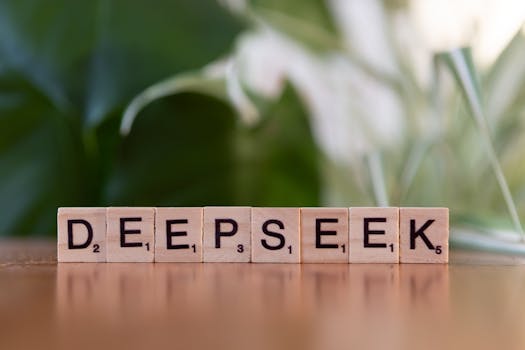Worried about AI taking over your programming job? Don't be! This article explores three compelling reasons why human programmers are here to stay, even with the rise of sophisticated AI tools.

The buzz around AI is deafening. From self-driving cars to AI-powered art generators, it feels like artificial intelligence is poised to revolutionize every industry. Naturally, many programmers are wondering: will AI take my job? While AI will undoubtedly change the programming landscape, the idea that it will completely replace human programmers is, in my opinion, a bit far-fetched. In this article, we'll explore three key reasons why human programmers are still essential and will remain so for the foreseeable future.
1. AI Lacks True Understanding and Creativity
One of the biggest limitations of current AI is its lack of genuine understanding. AI can process vast amounts of data and identify patterns, but it doesn't truly understand the meaning behind that data. This is crucial for complex programming tasks that require creativity, problem-solving, and the ability to adapt to unforeseen circumstances.
# The Nuances of Real-World Problems
Real-world programming problems are rarely straightforward. They often involve ambiguous requirements, conflicting priorities, and incomplete information. Solving these problems requires a level of critical thinking and intuition that AI simply doesn't possess. For example, imagine you're building a mobile app for a local restaurant. The client provides some basic requirements, but they haven't fully considered the user experience. A human programmer can identify these gaps, ask clarifying questions, and propose creative solutions. An AI, on the other hand, can only work with the data it's given, potentially leading to a functional but ultimately unsatisfying product.
# Creativity in Code
Good code isn't just functional; it's also elegant, efficient, and maintainable. Achieving this requires a certain level of creativity and artistic flair. Think of it like writing a song. An AI can generate a melody based on existing patterns, but it can't create a truly moving and original composition. Similarly, an AI can generate code that technically works, but it's unlikely to produce code that is as clean, efficient, and adaptable as code written by a skilled human programmer.
2. AI Still Needs Human Guidance and Oversight
Even the most advanced AI tools require human guidance and oversight. AI is only as good as the data it's trained on, and it's prone to errors and biases. Human programmers are needed to train these AI models, validate their output, and correct any mistakes.
# Data Bias and Ethical Considerations
AI models can inadvertently perpetuate and amplify existing biases in the data they're trained on. For example, an AI recruitment tool might discriminate against certain demographic groups if the training data reflects historical biases in hiring practices. Human programmers are needed to identify and mitigate these biases, ensuring that AI systems are fair and ethical. This requires careful consideration of the ethical implications of AI, something that AI itself cannot currently do.
# Debugging and Maintenance
Even with the best AI tools, bugs and errors are inevitable. Debugging complex software systems requires a deep understanding of the underlying code and the ability to trace errors back to their source. While AI can assist with debugging, it's unlikely to completely replace human debuggers. Furthermore, software systems require ongoing maintenance and updates to address security vulnerabilities, improve performance, and add new features. This is a continuous process that requires human expertise.
Practical Tip: Embrace AI tools as assistants, not replacements. Learn to use them to automate repetitive tasks and improve your productivity, but don't rely on them to do all the thinking for you.
3. The Demand for Programmers is Still Growing
Despite the rise of AI, the demand for programmers is still growing rapidly. As technology becomes increasingly integrated into every aspect of our lives, the need for skilled programmers to build and maintain these systems will only continue to increase. New programming languages and frameworks are constantly emerging, creating new opportunities for programmers to learn and grow.
# The Ever-Evolving Tech Landscape
The technology landscape is constantly evolving, with new languages, frameworks, and platforms emerging all the time. This creates a constant demand for programmers who can adapt to these changes and learn new skills. While AI can help programmers learn new technologies more quickly, it can't replace the human ability to learn, adapt, and innovate.
# Specialization and Niche Skills
As the programming field becomes more complex, there's an increasing demand for programmers with specialized skills in areas such as machine learning, data science, cybersecurity, and blockchain. These niche skills are highly valued and are unlikely to be automated by AI anytime soon.
Example: Consider the field of cybersecurity. While AI can be used to detect and prevent cyberattacks, it can't replace human security experts who can think like attackers and develop innovative defenses. The cat-and-mouse game between attackers and defenders requires a level of creativity and adaptability that AI simply doesn't possess.
Conclusion
While AI will undoubtedly change the programming landscape, it's unlikely to completely replace human programmers. AI lacks the true understanding, creativity, and ethical awareness needed to solve complex programming problems. Furthermore, the demand for programmers is still growing, creating new opportunities for skilled professionals. Embrace AI as a tool to enhance your skills and productivity, but don't fear that it will take your job. The future of programming is a collaborative one, where humans and AI work together to create amazing things.
